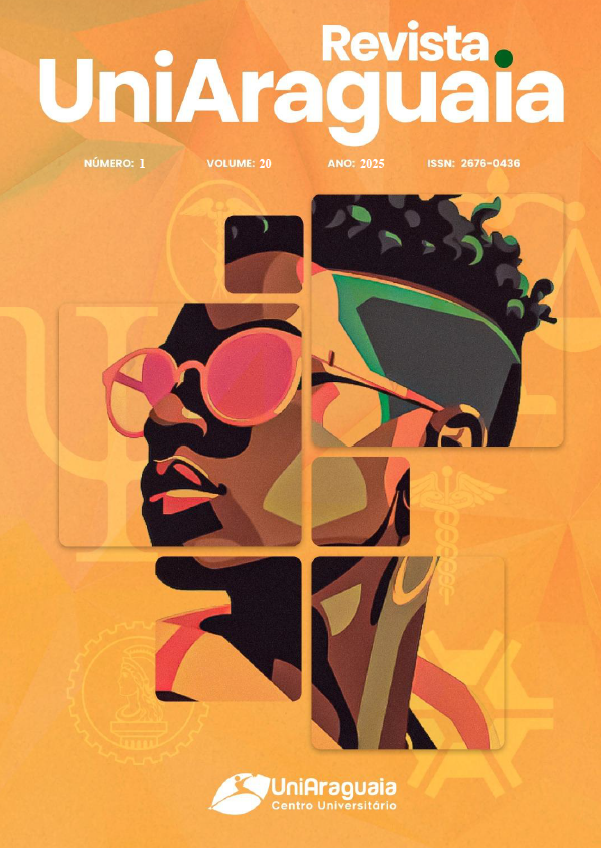ENTRELAÇANDO PERSPECTIVAS AFROFUTURISTAS NO COMBATE AO RACISMO CONTRA INDÍGENAS POR MEIO DE UMA METODOLOGIA ATIVA
Palavras-chave:
Afrofuturismo, Indigenismo, Educação, Racismo, Metodologia Ativa, CartodiversidadeResumo
O trabalho trata da construção de um produto educacional, que foi desenvolvido como trabalho final na Especialização em Educação para as Relações Etnicorraciais ofertada pelo IFPA campus Belém. O produto consiste em um jogo de tabuleiro contendo vinte casas e vinte cartas, sendo dez com perguntas e dez com respostas, além de um dado de plástico e dois pinos. Foi realizado um teste para avaliar a aplicabilidade do produto e após isto aprimoramos a qualidade dos materiais e o layout do tabuleiro. Para a elaboração da pesquisa nos afinamos com a revisão de literatura baseada no trabalho de Ernesto (2019) sobre o Afrofuturismo, Pacheco (2012) com o Afroindigenismo e Vaz e Rocha (2021) e Rocha (2019) no que tange à metodologia. O objetivo do trabalho é investigar como o afrofuturismo potencializa o combate ao racismo contra indígenas em sala de aula, partindo da hipótese que é possível trabalhar perspectivas afrofuturistas e a questão indígena no combate ao racismo a partir de um produto educacional, buscando contribuir para a transposição didática antirracista dos saberes indígenas na perspectiva afrofuturista, trabalhando a diversidade etnicorracial indígena em sala de aula e o trato com a diferença com uma abordagem decolonial. A pesquisa foi satisfatória na medida em que alcançou os objetivos propostos levando questionamentos, inquietações e desconstruções da história eurocêntrica, proporcionando o protagonismo dos alunos quando estes puderam criar novos imaginários, partindo de sua realidade, sobre a diversidade e conectar isto com perspectivas afrofuturísticas como tecnologia e futuro possível. Desse modo, a transversalidade no trato com a diferença é um elo que conecta diferentes olhares e conceitos, trabalhando a desconstrução de estereótipos, mostrando, pluralidade étnica e a diversidade.
Referências
COSTA, Bruno José Ferreira Da; TENÓRIO, Thaís; TENÓRIO, André. A Educação Matemática no Contexto da Etnomatemática Indígena Xavante: um jogo de probabilidade condicional. Bolema, Rio Claro (SP), v. 28, n. 50, p. 1095-1116, dez. 2014. Disponível em: https://www.scielo.br/j/bolema/a/CfnrZrtzFHvP8BWbsvMQrcr/abstract/?lang=pt. Acesso em 12 de novembro de 2024.
DIAS, Nathaly de Moraes. A ficção afrofuturista na educação decolonial brasileira. Cadernos de Clio, Curitiba, v. 11, nº. 2, 2020. Disponível em: https://www.researchgate.net/publication/355921565_A_ficcao_afrofuturista_na_educacao_decolonial_brasileira. Acesso em 09 de dezembro de 2024.
ERNESTO, Luciene “Lu Ain-Zaila” Marcelino. Afrofuturismo: O espelhamento negro que nos interessa. 2019. Disponível em: https://periodicos.ufjf.br/index.php/facesdeclio/article/view/41943. Acesso em: 12 de novembro de 2024.
FARIAS, Marcela Sarah Filgueiras de; MENDONÇA, Andréa Pereira. Concepção de produtos educacionais para um mestrado profissional. Disponível em: http://mpet.ifam.edu.br/ . Acesso em 12 de outubro de 2024.
MIGNOLO, Walter. Histórias Globais/projetos Locais: Colonialidade, saberes subalternos e pensamento liminar. Belo Horizonte: Editora UFMG, 2003.
MIGNOLO, Walter. Novas reflexões sobre a “idéia da américa latina”: a direita, a esquerda e a opção descolonial. Caderno CRH, Salvador, v. 21, n. 53, p. 239-252, Mai/ago. 2008.
PACHECO, Agenor Sarraf. Cosmologias afroindígenas na Amazônia marajoara. Projeto História, São Paulo, n. 44, pp. 197-226, jun. 2012. Disponível em: https://revistas.pucsp.br/index.php/revph/article/view/10219. Acesso em 15 de outubro de 2024.
PACHECO, Agenor Sarraf. Afroindigenismo por Escrito na Amazônia. RELACult – Revista Latino-Americana de Estudos em Cultura e Sociedade. 03, ed. especial, dez., 2017, artigo nº 645 | relacult.claec.org | e-ISSN: 2525-7870. Disponível em: https://periodicos.claec.org/index.php/relacult/article/view/645. Acesso em 15 de outubro de 2024.
ROCHA, Helena do Socorro Campos da (org.). Práticas educacionais criativas para a diversidade etnicorracial na formação de professores de ciências biológicas, geografia, língua portuguesa e química. Núcleo de Estudos Afro-brasileiros e Diversidades – IFPA CAMPUS Belém, 2019. Disponível em: http://educapes.capes.gov.br/handle/capes/585115. Acesso em 20 de outubro de 2024.
ROCHA, Helena do Socorro Campos da. Afrofuturismo na educação: criatividade e inovação para discutir a diversidade etnicorracial. UFPA. Belém, 2020.
ROCHA, Helena do Socorro Campos da; VAZ, Cristina Lúcia Dias. Afrofuturismo na educação: o caso da metodologia ativa cartodiversidade. Revista e-Curriculum, São Paulo, v. 19, n. 3, p. 1036-1059, jul./set. 2021. Programa de Pós-Graduação em Educação: Currículo – PUC-SP. Disponível em: http://revistas.pucsp.br/index.php/curriculum.
SACRISTÁN, José Gimeno. Saberes e Incertezas Sobre o Currículo. Penso Editora. jul., 2013.
SOUZA & RODRIGUES; Rosemeire de Oliveira; Sonia da Silva. Lei nº 11.645/2008 – Vivências e Práticas. In: Ensino de História Indígena na sala de aula: repensando práticas e metodologias. São Carlos: Pedro & João Editores, 2023. 212p. 16 x 23 cm.
Downloads
Publicado
Edição
Seção
Licença

Este trabalho está licenciado sob uma licença Creative Commons Attribution 4.0 International License.
O autor pode ainda, imprimir e distribuir cópias do seu artigo, desde que mencione que os direitos pertencem a REVISTA UNIARAGUAIA.
Os direitos de autor incluem o direito de reproduzir na íntegra ou em parte por qualquer meio, distribuir o referido artigo, incluindo figuras e fotografias.
Ao submeterem originais à REVISTA UNIARAGUAIA, o(a) autor(a) ou autores manifestam concordância com os seguintes termos:
a) Autores mantém os direitos autorais e concedem à REVISTA UNIARAGUAIA o direito de primeira publicação, com o trabalho simultaneamente licenciado sob aLicença Creative Commons Attributionque permite o compartilhamento do trabalho com reconhecimento da autoria e publicação inicial nesta revista.
b) Autores têm autorização para assumir contratos adicionais separadamente, para distribuição não-exclusiva da versão do trabalho publicada nesta revista (ex.: publicar em repositório institucional ou como capítulo de livro), com reconhecimento de autoria e publicação inicial nesta revista.
c) Autores têm permissão e são estimulados a publicar e distribuir seu trabalho online (ex.: em repositórios institucionais ou na sua página pessoal) a qualquer ponto antes ou durante o processo editorial, já que isso pode gerar alterações produtivas, bem como aumentar o impacto e a citação do trabalho publicado

